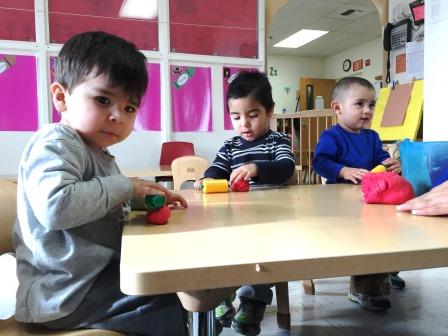
Research tells us that early childhood is the best time to learn a second language. Young children’s brains are wired to learn as much information as they can. But what really happens when a child is exposed to a second language? If your child starts going to a bilingual school, what should you expect?
It’s probably no surprise that every child is different. Children learn languages in different ways and in different stages. When some children start learning a new language they go through what’s called a “silent phase”.
When a child is exposed to a new language, their brain wants to figure out what is going on around them. They start listening and looking more carefully. They will use context clues to figure out what is going on.
Sometimes, when a child is learning a second language, they will not speak as much in their home language. This “silent phase” is completely normal and many children experience it. Some children will experience it for a long time. Some children will slow down their speech, or take more time to respond to a question. These responses are all OK, because everyone learns a little bit differently.
The best way to support a child going through a silent phase is to use lots of body language, facial expressions and physical objects while you are communicating with them. If you can, it’s good to make connections between the home language and the second language, like having a book with the same story written in two different languages.
It’s also important to continue speaking to your child in your home language and to be patient with them. Singing songs together is a great way to help build language skills too! It can help your child’s development while their brain “decodes” the second language and learns how the two languages can work together.
If you have questions about your child’s language development, you can ask your OCDC teacher for help. She can help you create games you can play with your child, or she can help you find resources from OCDC or from the community. Don’t be afraid to ask! We are here to help you and to help your child, so that everyone grows up as health and as happy as possible.
